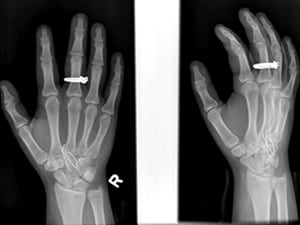Question:
Like many of my friends, I enjoy using Facebook, Twitter, and YouTube. How can I keep my online presence professional and in accord with patient privacy rules?
 | Response from Megan L. Fix, MD Associate Residency Director, Emergency Medicine, University of Utah, Salt Lake City |
Facebook, Twitter, and other social networking Websites are fun, and your online identity can be informative to future employers, patients, or colleagues. But involvement in social media can also get you into trouble if you aren't careful. Here are some suggestions for safeguarding hospital and patient privacy and your perceived professionalism online, both as a student applying for residency and as a medical professional.



